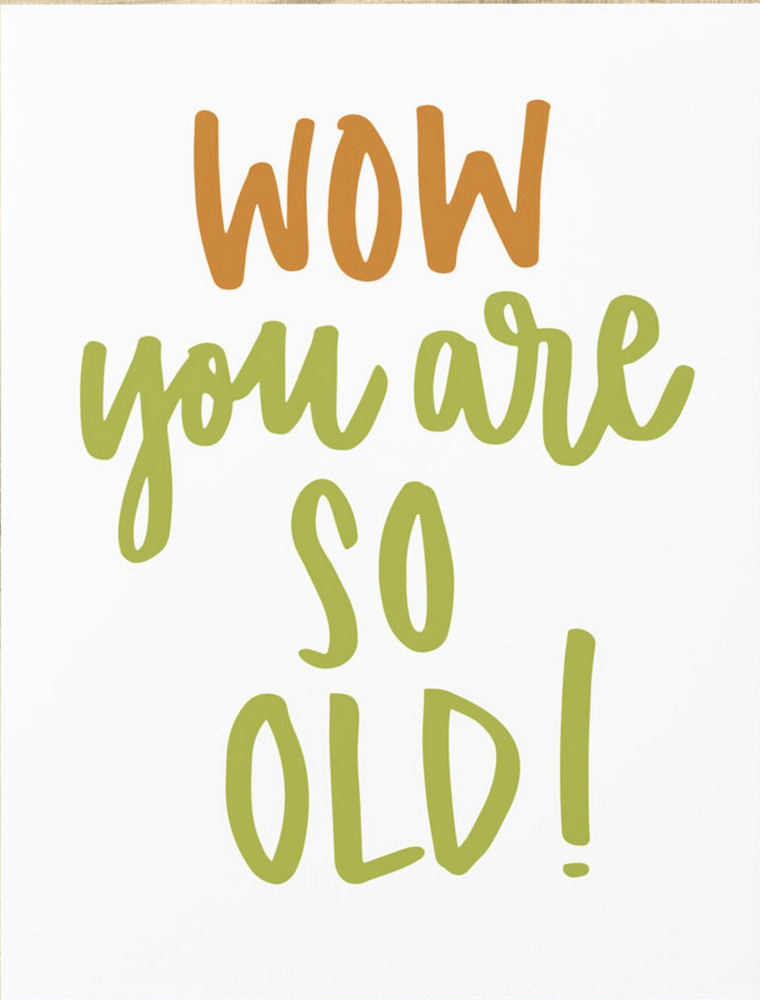We want your views: do you buy cards which joke about ageing… and how do you feel about receiving them? By Dave Martin of AAA members Canopy.
Last November the Age Action Alliance featured the Better Birthdays campaign backed by the Silver Marketing Association to promote age-positive birthday cards.
Ageism is a problem so embedded into our culture that it can be hard to see. But ageist messages are everywhere, even in something as positive as birthday cards. After we reach a certain age, birthday cards that refer to age seem to be less about celebration than humiliation. No doubt that some of them are funny, but taken as a whole, how does it feel to see yourself universally portrayed as irrelevant, unattractive and broken?
Consider flipping this around and see how it feels. What if we celebrated children’s birthdays with messages like, “Now you are five, No more fun for you. Welcome to school.”? That’s a pretty incomplete viewpoint on age and it certainly doesn’t seem celebratory.
But aren’t jokes about getting older just a bit of fun?
We have spoken to several senior executives in the UK Greeting Card Industry about the ageist nature of cards which make fun of ageing being older.
They knew a thing or two about cards and they told us that the relationship between sender, recipient and card is highly nuanced… a “triangle”. And it was important to understand and appreciate the “context” of that triangle. The buyer would choose a card which reflected the nuanced relationship between him/her and the recipient. It was an intimate triangle within their relationship.
Therefore, cards which they suggested we “might” consider ageist should be seen in context as the intimate banter between friends.
In addition, they highlighted that these types of cards are best sellers and many who buy them are themselves older people buying them for their peers; so there’s nothing to worry about.
The industry believes that in the vast majority of cases, the sending of these cards creates a sense of camaraderie, playfulness, reassurance and intimacy between sender and recipient.
We aren’t here to argue with them. After all, we don’t imagine that many people who send these cards intend to cause offence or harm.
But what do you think?
Being able to understand how people experience these birthday messages, both as senders and receivers, is really important in understanding how to design the kinds of birthday cards you want to send and receive. If you want to help us understand or you want to share your views please fill out our 3-minute survey here. https://forms.gle/JeapfLeJ4CQsRSNx8
Get involved
If the campaign is of interest and you’d like to know more, we would love to hear from you as there are lots of ways you can get involved. Here are a few ideas:
- Please share the survey with your networks, friends and families by copying and pasting the link at the top of the page
- Please buy and send great cards
- If you would like to host or take part in a conversation about ageism which uses birthday cards to explore how ageism shows up in our everyday lives, then we can help with that too.
Join us in the movement to support Better Birthdays by spreading the word to everyone you know who has a birthday (i.e. everyone), and buying age-positive cards. We can all work together to be part of ending ageism.
Contact details: Dave Martin lifecourseageing@gmail.com
